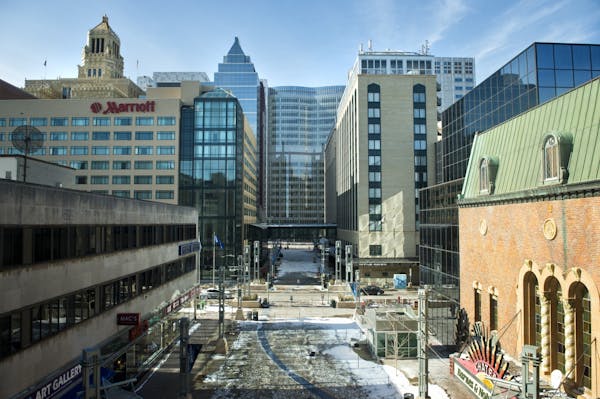A few decades ago, during what were for me idler times, I used to play a rudimentary version of a computer game called "SimCity." You'd start with an unspoiled expanse of land and, block by block, develop your vision. You had to work within a budget, but if you knew the magic keystrokes, you could get around that. There were natural disasters, but if you weren't in the mood, you could turn them off. Ultimately, the thing that made the game frustrating, I recollect, was as follows:
"Voters demand a hospital!"
"Voters demand a stadium!"
Yes, those pesky Sims (as the populace would be called) clung annoyingly to the notion that they should have a say in my city, and what's more, they wanted costly amenities, and what's more, they weren't so very fond of taxes.
I just wanted majestic boulevards flanked by stunning architecture, rugged mountains and pristine waters, with views galore. For heaven's sake, I did not go there to govern.
I bring this up because of two items recently in the news: the troubled funding mechanism for the forthcoming Vikings stadium, and the plan for government collaboration that will allow the Mayo Clinic to expand its campuses and capabilities in Rochester.
The former is the gawkable train wreck at the moment, but the latter is of greater interest to me, not least because I worked for Mayo, as an orderly wheeling patients to their X-rays, when I was a teenager on the geographically plainer western spoke of Rochester's regional hub. It was my second steady job, and I liked it, since it paid more than my first as a grocery carryout boy and because the people I pushed around came from all over and were generally friendly. (By comparison, one thing I recall about the grocery store was the training video in which we were asked to react to an image of an angry customer gesticulating with a can of peas. I initially thought it had been exaggerated for learning purposes, but, sadly, no.)
It's hard to take a stand against Mayo's plan. First, the clinic is an institution of which this state can be steadfastly proud. Second, the proposal doesn't call for an outright cash grab; government would improve infrastructure by earmarking future tax revenues brought about by Mayo's growth. Third, among all the world's industries, health care surely is one of the most immune to debilitating change.
What could possibly go wrong? Well …
Consider Best Buy. At the turn of the century, its headquarters employees were flung about the Twin Cities area, and it wanted a home office (in a manner of speaking). The city of Richfield used eminent domain to clear a spot near Interstates 494 and 35W. Eighty-two homes and several businesses went down. A campus went up. The result is impressive. But Best Buy's future, as is true for so many businesses, is not as bright as it once appeared to be.
Or consider Northwest Airlines. In the 1990s, public subsidies were extended to ensure that the company could maintain a viable enterprise at Minneapolis-St. Paul International Airport and a job-creating outpost in Duluth. But when you go down the jetway at MSP today, it's not an NWA plane you step into.
Or consider the newspaper industry. When I joined up in the late 1980s, I just wanted to do journalism. How it got paid for was somebody else's problem. I certainly didn't anticipate that a key revenue source like classified advertising would be undercut by a new service like Craigslist that was both limitless and free, and that my work would be affected.
A few years ago, I was in Beijing. The Chinese have got this whole economic-development thing figured out, and the secret is one-party rule. No dissent means no delay. Trouble is, the landscape is now studded with miles upon miles of 25-story buildings that look alike, with a sort of subtle garishness, if such a thing is possible. They can fill 'em up in Beijing. But other master-planned Chinese cities are virtual ghost towns. It's not necessarily true that if you build it, they will come.
The story here at home is different, yet similar. Several Twin Cities suburbs that came of age in the strip-mall era have tried to develop downtowns. These new spaces are fresh and pleasant but lack spirit. In Minneapolis, years of attempts to redevelop an unseemly but authentic downtown stretch finally culminated in the appropriately named Block E. "E" for endurance. "E" for empty.
The early versions of "SimCity" had it right: You could set zones and density levels, but beyond that, things were pretty much out of your control. As much as we'd like to make everything perfect, real change happens organically. No one knows which of today's decisions will be appreciated tomorrow. No one knows the magic buttons to push for more money. And storms will rage whether we want them or not.
* * *
David Banks is the Star Tribune's assistant commentary editor.

David Banks: Say what about small towns?

Nikki Haley's prejudice against aged politicians

Sometimes it melts in April

No stranger to guns — just not good with them


